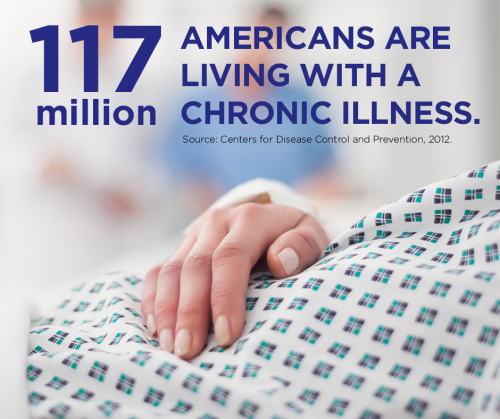
It’s like having an uninvited house guest who contributes nothing, eats everything in the kitchen, occasionally damages the furniture and won’t leave despite all attempts to kick him out. Eventually, resignation sets in and you begin trying to figure out how you’re going to work around this vermin over the long-term.
A chronic illness diagnosis (cancer, diabetes, arthritis, to name a few examples) changes everything and what makes it a special kind of challenge is the complexity of the effects. Everything is connected to everything else and so it seems no matter how much time goes by, you continue to discover another area that is impacted by the diagnosis. Let’s break down the major categories:
Obviously, there are physical changes which come with the diagnosis. Those vary according to the specific illness. The consistent theme however, is the idea of limitation. Physically, your body just doesn’t perform in the way you are used to. Changes may be immediate or insidiously appear over time. Energy level is often greatly affected and thus motivation to accomplish what was normal for you in the past, wanes significantly. All of this leads to some form of identity crisis as our culture has so trained us to associate identity/worth with production. If I cannot function/produce at the level to which I am accustomed, what does that say about me? What makes me worthwhile?
Mentally – most chronic illnesses do impact brain functioning. At best, we may experience some mental ‘fogginess’. At worst, there may be physiological changes to the brain that result in difficulties with long and/or short-term memory or even personality change. Processing speed often declines and things like executive functioning may be challenged. It is difficult to determine which of these changes result from the illness itself and which are side effects of long-term medications.
Emotionally – the self-worth battle is a significant issue. As we lose major aspects of how we defined ourselves, we struggle to redefine and focus on what now makes us who we are. If we have always struggled with self-care, the idea of prioritizing self and doing what it takes to pursue health is a foreign concept. We may face spiritual crisis as we wrestle with the idea of a higher power that would allow this to happen. This current battle filters through the lens of all we have experienced. The meanings we have made of our childhood then, determine how we integrate this latest development. If those meanings are dysfunctional – managing a chronic illness becomes nearly impossible. One of my areas of special interest is the reciprocal nature of this domain. So many chronic illnesses have a correlation with unresolved emotional challenges. It is becoming clear from medical research that emotional trauma increases the rates of chronic illness. Thus, it makes sense that addressing emotional trauma would be a key component of preventing/treating chronic illness and that is one of my passions!
Socially – our loved ones struggle to adjust to the implications of our diagnosis. As we sort out the lifestyle changes needed to care for our condition, the aforementioned limitations; as we deal with our own changing self concept, we relate to everyone differently. If we are not aware of this, then we are not even able to help others figure out what is happening and thus, we collectively exist in a state of confusion and frustration. In the end, everyone is experiencing their own grieving process of the way things used to be and the envisioned future that now will not manifest as planned. Grieving is complicated (denial, bargaining, anger, depression, acceptance). Imagine a system of individuals all working through that process at their own unique speeds in the context of their own functional and dysfunctional coping skills and core meanings. Is it any wonder that it gets messy?! Suffice it to say, relationships are absolutely impacted, yet very little attention is given to this area.
Unfortunately, most medical teams do not take the time to inform, much less address these complex issues. Too many patients muddle through their diagnosis, unaware of the developmental impact and what are very normal implications. Our default is to always seek status quo (remember learning about homeostasis in biology class?) and so the aftermath of a diagnosis often looks like a constant battle to return to our “normal” with increasing frustration at the inability to do so. The scary part is that all of this then exacerbates our illness, making our physical condition worse and creating a vicious cycle of decline.
My hope is that this information helps someone realize that they are not the problem. That the struggles they have been having are perfectly normal in the reality of a chronic illness and that there is hope! Knowledge is power and once we understand what we are dealing with, we can create and execute a plan of attack. Just as the doctor delivers information, prompts options in need of research, creates the physical treatment plan and monitors progress – so too can the counselor educate on the developmental impact of chronic illness, highlight areas for exploration, as well as create the emotional, mental and social treatment plan. Carefully working on self-worth and relationships within the context of physical limitations is key. Constantly monitoring self-care: sleep, nutrition and movement is a requirement. Completing the tasks of grieving is necessary for transitioning into a new normal: taking inventory and accepting the reality of your losses, working through the pain of loss, adjusting to the new environment created by the current reality and integrating the old self with the new self. The best part is that this work improves physical outcomes so despite the difficulty of the process, it is definitely worth it!

Pingback: Sweet Dreams | Phenix Counseling